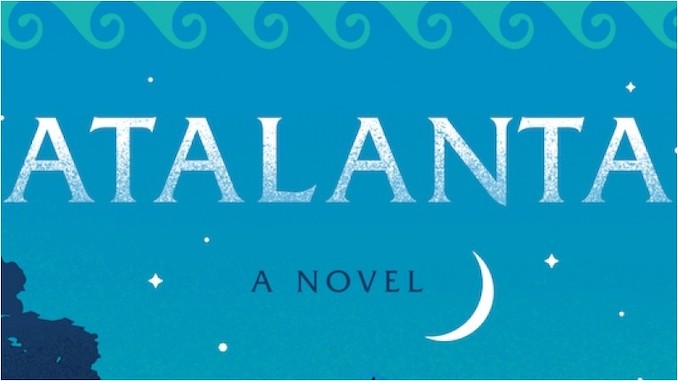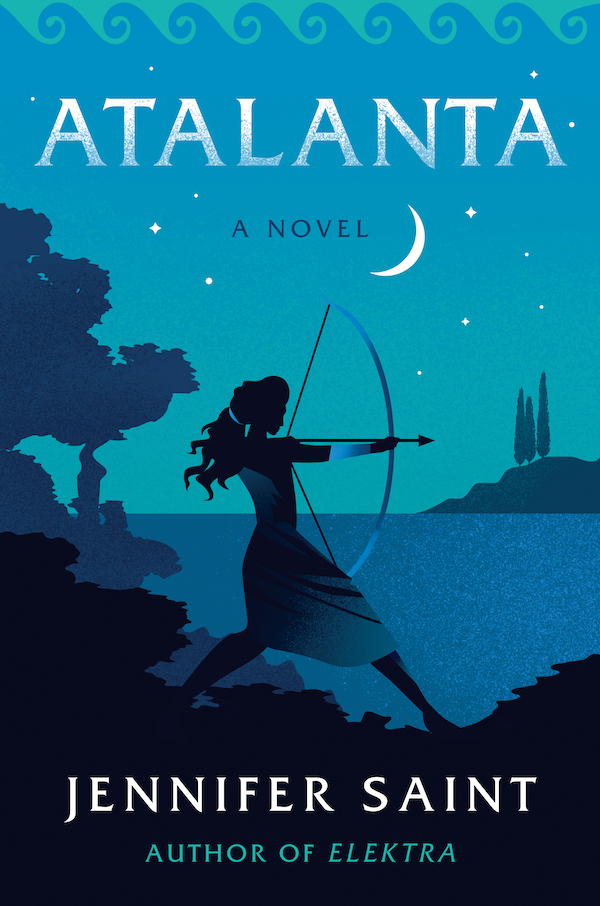Exclusive Cover Reveal + Q&A: Atalanta Is Jenny Saint’s Latest Greek Mythology Retelling

Author Jenny Saint has been at the forefront of the (very welcome) recent publishing trend aimed at reevaluating and reassessing some of Western literature’s most famous foundational myths through a distinctly female lens. Her previous novels Ariadne and Elektra both explored the stories of famous fictional women whose tales are generally subsumed into those of the men in their lives, and her next book, titled Atalanta aims to reintroduce modern audiences to a heroine that many likely have never heard of at all.
The only woman to join Jason’s famous Argonauts but one of the few members whose presence in that famous adventure is largely ignored by subsequent legends and retellings, Atalanta isn’t the sort of instantly recognizable figure to readers that characters like Ariadne, Elektra, Clytemnestra, or Cassandra are. But Saint aims to change all that with Atalanta, giving her heroine the same sort of epic adventure that the men around her have long been remembered (and praised) for.
Here’s how the publisher describes the story.
When Atalanta, a daughter, is born to the King of Arcadia, she brings only disappointment. Left on a mountainside to die, she is rescued by a mother bear and raised amongst cubs under the protective eye of the goddess Artemis, who teaches her to survive and hunt. Artemis warns Atalanta to stay away from men—if she marries, it will be her undoing.
Determined to prove her worth as equal to that of the heroes her father had hoped for, Atalanta leaves her forest to fight alongside Jason’s band of Argonauts. Then in defiance of Artemis’ warning, she embarks on an affair, only to be met with tragedy.
When her father finally acknowledges her and pressures her to marry, Atalanta insists any successful suitor must beat her in a footrace to win her hand—and defeats hopeful contenders one by one. But can she carve out her own legendary place in a world made for men?
Though Atalanta won’t officially hit shelves until May 2, 2023, we’re thrilled to be able to exclusively reveal the novel’s (extremely gorgeous!) cover for you all right now.

We even had the chance to chat with Saint herself and get a brief preview of Atalanta’s story and what drew her to this particular myth in the first place. Read on to find out more about what to expect from Atalanta!
![]()
Paste Magazine: You’ve written books about Ariadne and Elektra—-why focus on Atalanta for this third novel—-who is a much less well-known mythological figure than your other heroines are. What made you want to tell her story?
-

-

-

-

-

-

-

-

-

-

-

-

-

-

-

-

-

-

-

-

-

-

-

-

-

-

-

-

-

-

-

-

-

-

-

-

-

-

-

-








































